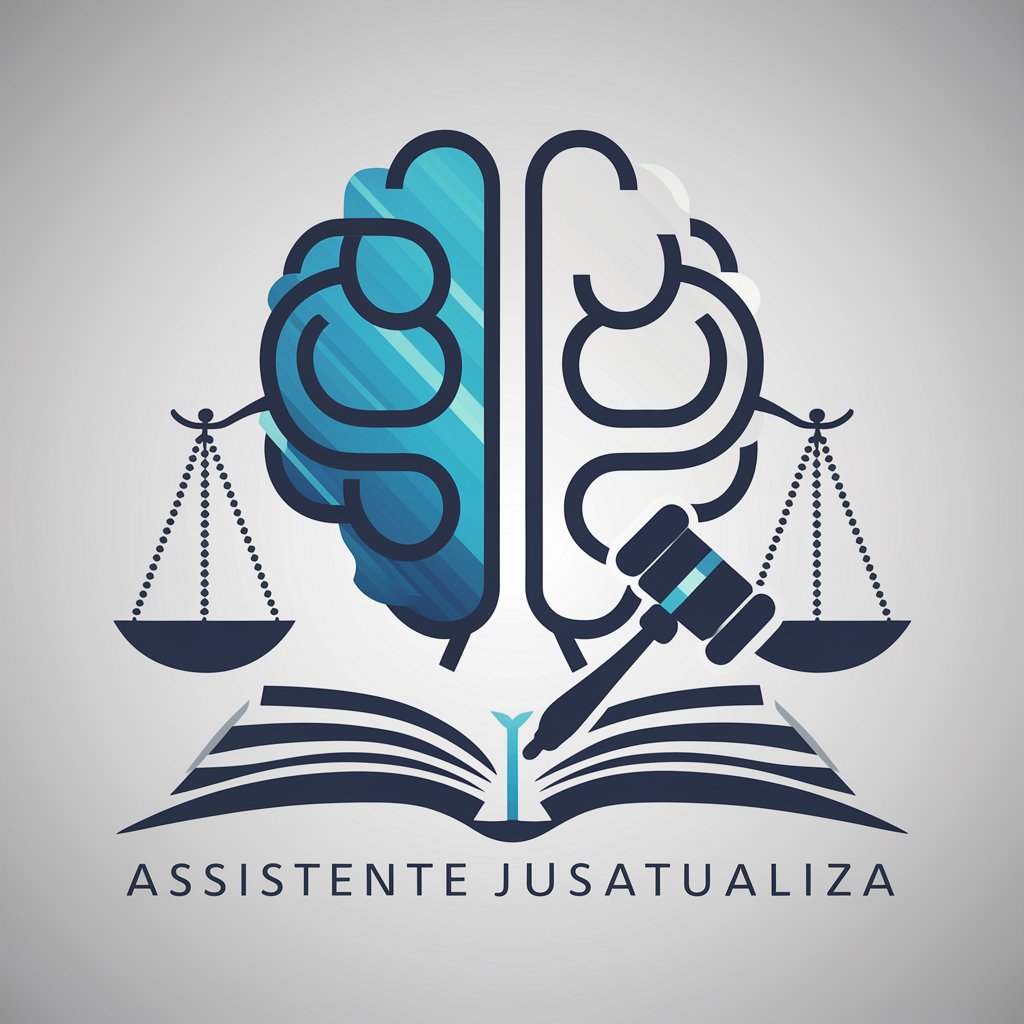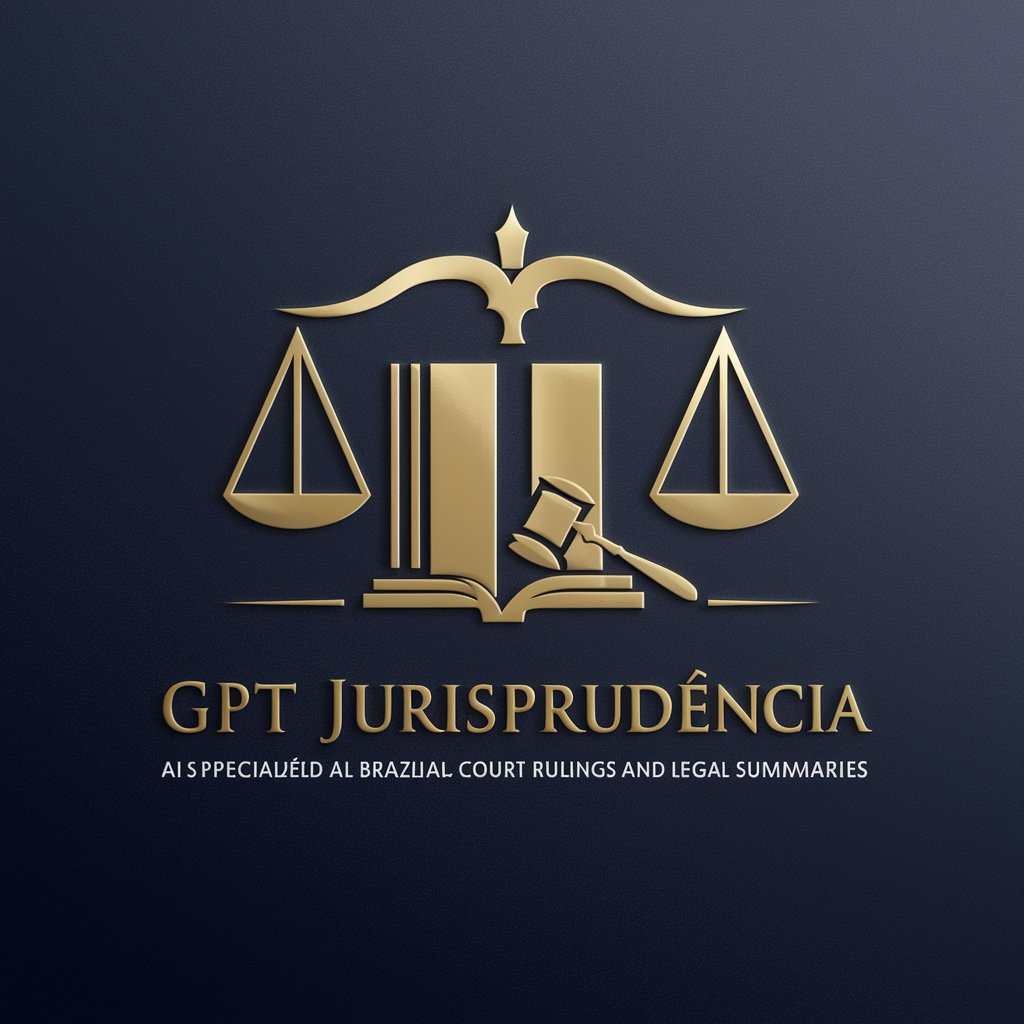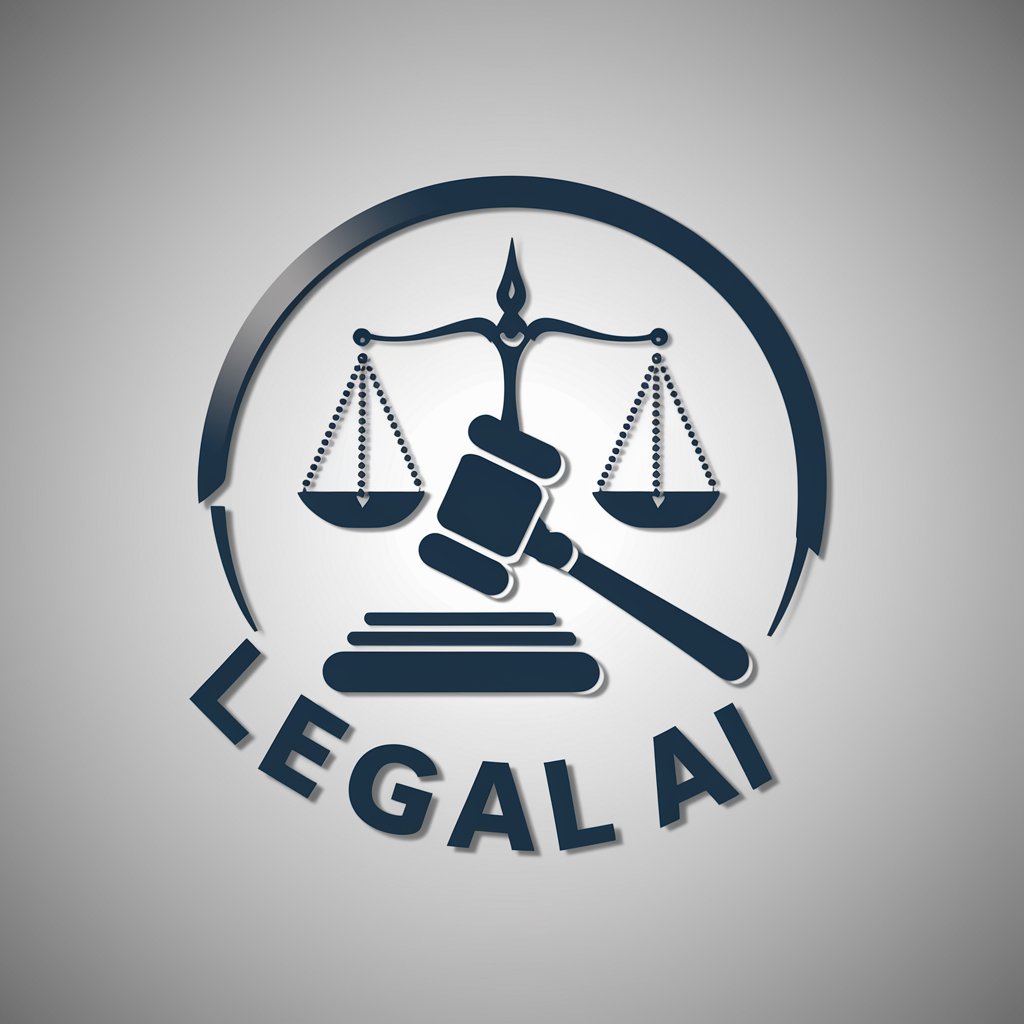8 GPTs for Jurisprudence Analysis Powered by AI for Free of 2026
AI GPTs for Jurisprudence Analysis are advanced computational tools designed to assist in the interpretation, understanding, and application of legal principles and cases. Leveraging the power of Generative Pre-trained Transformers, these AI models are specialized in processing legal documents, case laws, and statutes to provide insights, summaries, and recommendations. They serve as invaluable assets in legal research, case preparation, and decision-making, offering tailored solutions that enhance efficiency and accuracy in the legal field.
Top 8 GPTs for Jurisprudence Analysis are: Assistente JUSATUALIZA,Sunni,GPT Jurisprudência,Integrador de Jurisprudencias BR,Advogado Agressor,Juris Consultor,COFINS no CARF - Assistente de pesquisa [Teste],Lex Tutor
Assistente JUSATUALIZA
Empowering Legal Professionals with AI

Sunni
AI-powered insights into Islamic studies.

GPT Jurisprudência
Empowering legal professionals with AI-driven jurisprudence search.

Integrador de Jurisprudencias BR
AI-powered legal research, streamlined.

Advogado Agressor
Empowering Your Legal Journey with AI

Juris Consultor
Empowering Legal Drafting with AI

COFINS no CARF - Assistente de pesquisa [Teste]
AI-powered COFINS Case Insights
![COFINS no CARF - Assistente de pesquisa [Teste] in GPT Store](https://r2.erweima.ai/i/2KZUieFCS3qBuP_uzlhBLA.png)
Lex Tutor
Empowering Legal Minds with AI

Essential Characteristics and Functions
AI GPTs for Jurisprudence Analysis boast several core features, including natural language processing capabilities for understanding legal jargon, adaptability to various legal systems, and the ability to perform complex legal analyses. These tools can summarize case laws, predict legal outcomes, and even draft legal documents. Special features include language learning for multi-jurisdictional support, technical support for integrating with legal databases, and the ability to customize analyses for specific legal questions or domains.
Primary Users of Jurisprudence AI Tools
The primary users of AI GPTs for Jurisprudence Analysis span from legal novices seeking to understand basic legal principles to seasoned legal professionals looking for advanced analytical tools. These AI tools are designed to be accessible to individuals without coding skills, featuring user-friendly interfaces, while also offering extensive customization options for tech-savvy users, including developers and IT professionals in the legal sector.
Try Our other AI GPTs tools for Free
Publication Insights
Discover how AI GPTs for Publication Insights transform data into actionable strategies, enhancing content relevance and impact in the publishing field.
Departmental Output
Explore AI GPTs for Departmental Output: innovative AI tools designed to streamline operations, enhance productivity, and provide tailored solutions for various departmental needs.
Clue Analysis
Explore AI GPTs for Clue Analysis: advanced tools designed to interpret, analyze, and derive insights from complex datasets across various domains, accessible to both novices and professionals.
Pirate Roleplay
Embark on a thrilling pirate adventure with our AI GPT tools, designed to immerse you in the lore and language of the high seas. Perfect for enthusiasts and creators alike.
App Connectivity
Discover how AI GPTs for App Connectivity can revolutionize your app ecosystem with advanced integration, automation, and smart solutions tailored to enhance functionality and user experience.
Comforting Conversations
Discover AI GPTs for Comforting Conversations: innovative AI tools designed to offer emotional support and empathetic dialogues, tailored for individuals seeking solace and mental wellness.
Expanding the Horizons of Legal Analysis
AI GPTs revolutionize jurisprudence by offering customized solutions that streamline legal research, document drafting, and case analysis. With user-friendly interfaces, these tools are accessible to a broad audience, enhancing the legal process. Additionally, the potential for integration with existing systems and workflows opens new avenues for efficiency and innovation in the legal sector.
Frequently Asked Questions
What are AI GPTs for Jurisprudence Analysis?
AI GPTs for Jurisprudence Analysis are artificial intelligence tools specialized in analyzing legal documents, case laws, and statutes to support legal research and decision-making.
Who can benefit from using these AI tools?
Both novices interested in learning about the law and professionals in the legal field can benefit from these tools for their research, case preparation, and legal document drafting needs.
Do I need programming skills to use these tools?
No, these tools are designed with user-friendly interfaces that do not require programming skills for basic functions, though programming knowledge can enhance customization and integration capabilities.
Can these tools predict legal outcomes?
Yes, by analyzing historical data and case laws, these tools can predict potential legal outcomes, providing valuable insights for case preparation.
Are they adaptable to different legal systems?
Yes, these AI tools are designed to learn and adapt to various legal systems and jurisdictions, making them versatile for international legal research.
Can AI GPTs draft legal documents?
Yes, these tools can assist in drafting legal documents such as contracts and pleadings by utilizing templates and customizable inputs.
How do these tools integrate with existing legal databases?
AI GPTs can be integrated with existing legal databases through APIs or custom programming, allowing them to access and analyze a wide range of legal materials.
What makes AI GPTs unique in Jurisprudence Analysis?
Their ability to process and understand complex legal language, adapt to various legal systems, and provide tailored analyses and predictions makes them unique and valuable in the field of jurisprudence.